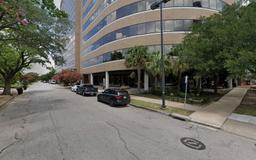Buccal Fat Reduction Houston by Russell Kridel, MD
Buccal Fat Reduction Houston, TX | Russell Kridel, MD
Understanding Buccal Fat Reduction
Buccal Fat Reduction is an advanced facial plastic surgical procedure designed to decrease fullness in the mid to lower cheek area. The procedure reduces the buccal fat pad, which can be naturally larger in some individuals, creating a more sculpted and defined facial appearance.
What is Buccal Fat?
Buccal fat pads are natural fat deposits located between cheekbones and jaw bones. The volume of these fat pads varies among individuals and typically remains unchanged through diet or exercise. For patients with fuller cheeks, reducing this fat can:
- Highlight cheekbone structure
- Create a more V-shaped facial contour
- Provide a more refined facial aesthetic
Procedure Details
Dr. Sean Delaney performs Buccal Fat Reduction using specialized techniques that ensure natural-looking results. The procedure involves an internal mouth incision, leaving no external scarring. Carefully removing an appropriate amount of fat creates subtle yet transformative facial sculpting.
Procedure Characteristics
- Duration: Approximately 1.5 hours
- Anesthesia: Local or IV sedation
- Incision: Inside the mouth
- Recovery: Minimal downtime
Ideal Candidates
The best candidates for Buccal Fat Reduction are healthy individuals who:
- Feel self-conscious about full or round cheeks
- Have consistent cheek fullness unaffected by weight changes
- Desire a more defined facial contour
- Are non-smokers
Recovery and Results
Most patients experience minimal discomfort and can return to normal activities within a few days. Swelling gradually subsides over three months, with final results becoming apparent as facial tissues adjust to the new contour.
Potential Combination Procedures
Buccal Fat Reduction can be combined with complementary procedures like submental liposuction or chin implant augmentation for comprehensive facial sculpting.
For more information about Buccal Fat Reduction in Houston, TX, submit an enquiry to Russell Kridel, MD.

